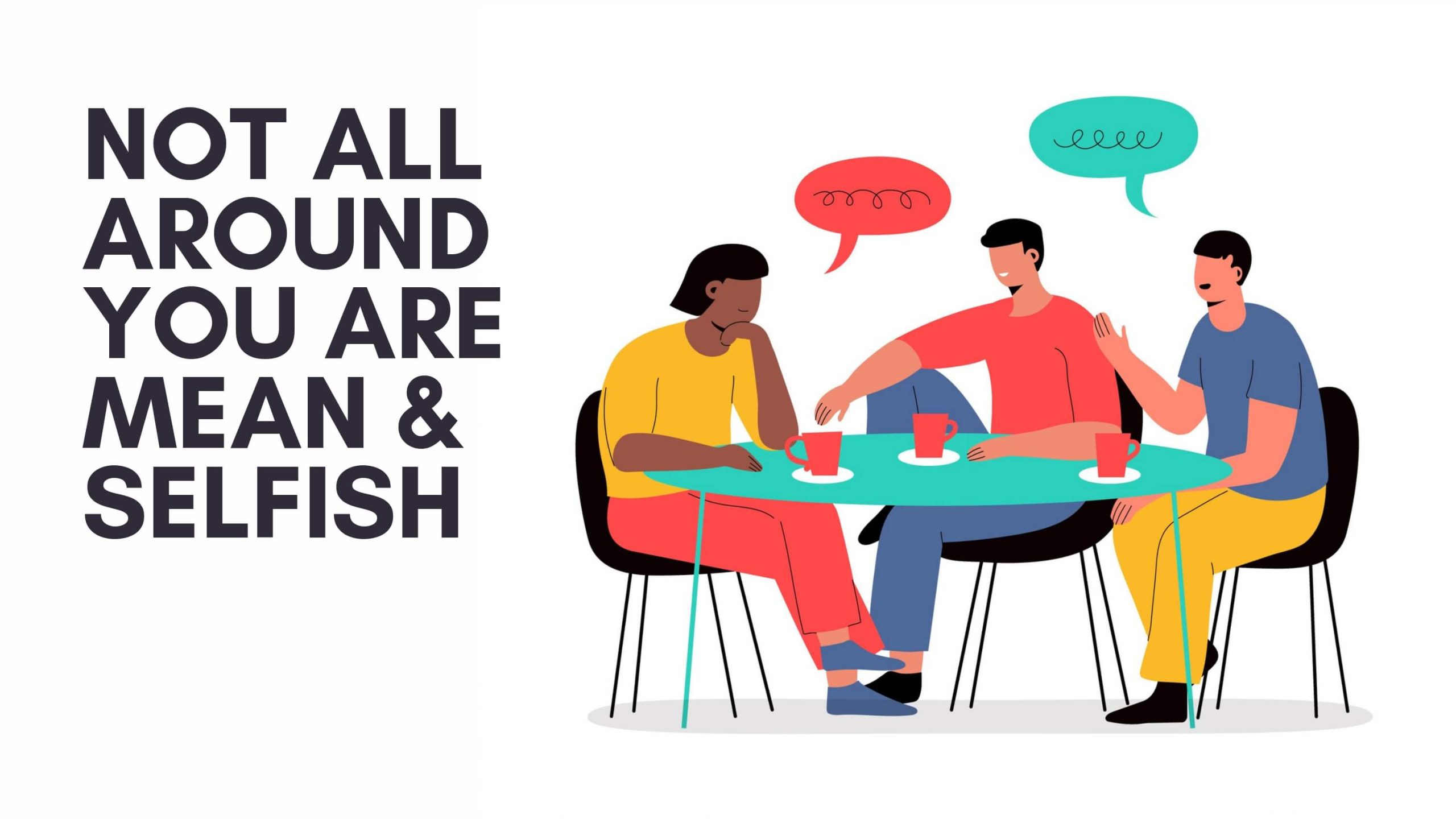Our world has many bad people in it, but this doesn’t mean all people are bad or have bad intentions. Often, in our daily life we assume that those around us are mean or are trying to gain the upper hand on us somehow.
While there are situations where it’s good to be careful, assuming others are mean or bad can lead to negative consequences. It can sabotage your personal relationships, make it harder to network, and also lead to a lot more stress to your daily life. Here are a few things to consider.
Your first impression is not always accurate
When you first meet a person, it’s easy to judge them quickly. We see them frowning and assume they are bad-tempered, for instance. However, our first impression won’t always be so accurate, because we might have caught the person at a bad time or in a situation where they are dealing with stress.
We tend to judge strangers more harshly and often assume things about their character. While it’s reasonable to be wary about a person who has shown bad attitudes, you might have caught them during a particularly bad time.
There is always more going on
We always have stuff going on. If you think about your own situation, you are dealing with many problems others might know about: emotional, physical, financial, at work, at home, and so on. At any given point, you are likely facing situations that can affect your ability to work on other projects or do your best.
Remember that other people are the same. Most have also a lot of issues always going on in the background. It’s just as complicated for them as for us. We often forget it and judge them negatively, but often other people are just as busy and just as preoccupied as we are. If we can remember this, it’s easier to be less judgmental and more compassionate, not assuming that people are always mean and careless.
We tend to focus more on the negative
Almost all people have the same bias towards the negative. It’s easier to notice and pay attention to the bad and the negative. We can remember a grudge for years and forget a favor much faster. It also influences our perceptions of other people. We look at them and tend to notice the bad things first, which can affect how we judge them to be overall.
We are more likely to focus on a flaw or a detail that seems negative to us. We can then extrapolate from this to make a broad judgment. If we see someone frowning, we might say that they are angry or unfriendly; however, this is not always a fair assessment. We might not pay attention to the positives, so we don’t factor any of these into our conclusion. Instead, it’s better to withhold judgment until we have more information.
People change depending on the situation
Different people might act very differently depending on what they are. A bad environment can bring out some very negative behaviors. While this is not an excuse, it’s worth remembering that we can all be susceptible to the influence of the situation.
We like to imagine that we are independent thinkers, but many studies confirm that we act differently if those around us act in a specific way. A toxic group or environment will push its members to act less positively, while outside of that space, that could be much nicer. We are, of course, responsible for our behaviors, but it’s useful to consider the environment and the way others are acting.
People respond to us
If everyone is always mean to us, sometimes we need to wonder if we are contributing to the problem. If we are always anticipating others will attack us or hurt us, we might get a bit more hostile than we would otherwise. Maybe in judging others as dangerous, we close ourselves up and may adopt a hostile attitude at times.
Accepting something like this is not easy, but can make the biggest change in our lives. We can’t force other people to change, after all. But if we do something about ourselves, then the changes can ripple throughout all areas and aspects of our lives.


